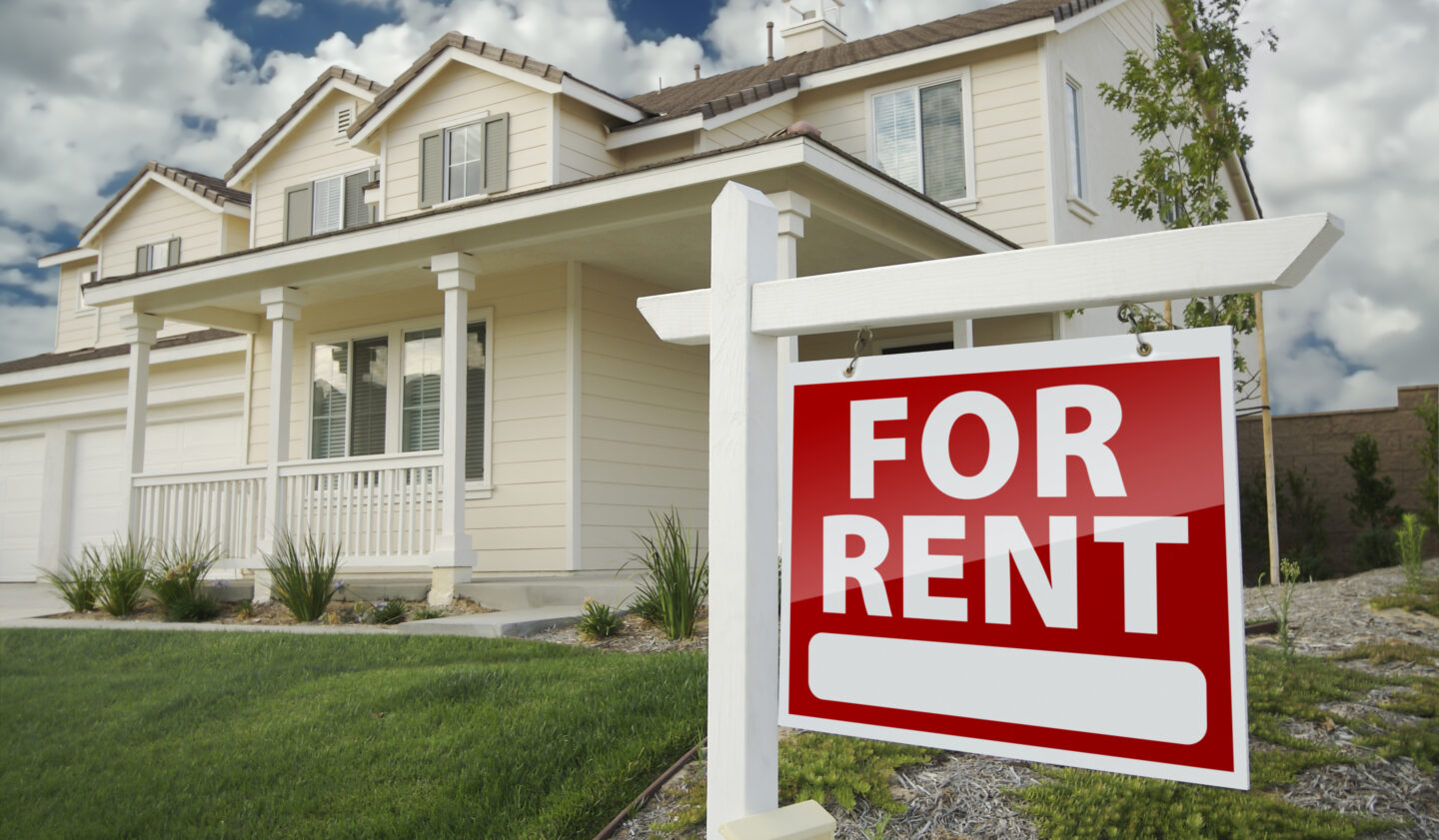Is Renting Better Than Buying?
For many people, renting a home can be a better fit for their finances and lifestyle than buying a home. See the top reasons people rent instead of buy.


Written by Shawnna Stiver on August 5, 2025
For many people, the idea of owning a home is often viewed as a milestone of adulthood or financial success. But the reality is that buying a home isn’t for everyone. Renting can actually offer more flexibility, fewer responsibilities, and even significant financial advantages depending on your lifestyle and needs.
According to Zillow research, among recent renters who intend to move within the next year, the share that say they plan to buy their next home fell to 39% in 2024, from 43% in 2023, meaning 61% plan to continue renting. Below, we’ll explore in detail the key reasons why renting may be a better choice than buying.
Lower upfront costs
Buying a home often requires a significant upfront financial investment. For most buyers, this means saving for a down payment, closing costs, and funds for immediate repairs or maintenance. These initial expenses can be a barrier if you don’t have sizable savings. There are resources, like Zillow Home Loans' BuyAbility tool, that can be used to help you find homes within your budget. These resources make it easier to realistically assess your ability to buy a home.
On the other hand, renting typically involves much less upfront cost. Renters usually just need a security deposit and the first month’s rent to move in. That lower cost makes renting more accessible for people who might be working toward other financial goals, such as paying off debt or building an emergency fund. Renting does however mean applying to multiple rentals until you're approved. The typical renter, according to a 2024 Zillow survey, submits two rental applications, which usually cost about $50 each. With Zillow, you can use our online portable applications to save money on application fees. You can apply to as many participating rentals within 30 days for a single $35 application fee.
Key takeaways:
- The upfront cost to rent an apartment is nearly $3,000 when you factor in the average rent cost ($2,100), application fee ($50) and security deposit ($750).
- The cost to buy a home is between 5-25% of the purchase price. This means a home with a sale price of $365,000 may require between $7,300 and $91,250 cash to close.
Predictable monthly expenses
One of the most appealing aspects of renting is the financial predictability. Your monthly rent is a fixed amount throughout the lease term, making it easier to budget. Your lease agreement reflects what to expect so you can avoid uncontrollable out-of-pocket costs related to home maintenance or future fluctuations in the housing market. It may also include a fixed payment for utilities, smoothing out payments that might otherwise vary month to month.
Homeownership, on the other hand, can come with surprise expenses. Homeowner’s insurance and property taxes can increase, interest rates on adjustable-rate mortgages (ARM) might fluctuate, and unexpected repairs (like a leaky roof or the replacement of a large appliance) can cost thousands.
Key takeaway: Renting means predictable monthly rent payments, while owning a home can come with unexpected monthly surprises, like increased home insurance costs or property taxes.
No property taxes
Property taxes are unavoidable for homeowners and can quickly add up, often costing thousands of dollars per year. These taxes are based on the home’s assessed value, which means they can increase if property values rise. They’re an ongoing expense that renters never have to worry about.
By avoiding property taxes, renters free up money to use elsewhere, whether for investing, saving, or enjoying life.
Key takeaway: Renting means you’re off the hook for paying property taxes directly each year, when it’s a requirement for homeowners.
Lower maintenance costs
When you rent, the cost of maintenance and repairs are usually covered by your landlord or property manager. This saves you potentially thousands of dollars in unexpected costs each year. According to a Thumbtack analysis, home maintenance and upkeep costs about $6,413 annually. Whether it’s a malfunctioning heater, a clogged drain, or a broken appliance, renters report it, and the landlord takes care of the rest.
Key takeaway: As a renter, your landlord is responsible for emergency repairs and maintenance, meaning you can spend more time focused on what matters most to you.
No fluctuating mortgage rates
If you own a home with an adjustable-rate mortgage (ARM), your payments can fluctuate significantly depending on market conditions. Rising interest rates can lead to higher monthly mortgage payments, making it challenging to budget long-term.
Renters, however, are shielded from this financial uncertainty. While rent might increase after the lease term, you benefit from predictability for the duration of your lease.
Key takeaway: When renting, you don’t have to monitor interest rates to lock in the lowest rate.
Relocation freedom
For those who value flexibility to live wherever, renting offers unparalleled freedom. Leases are typically agreements anywhere from three to 18 months, allowing renters to easily relocate. This is especially beneficial for people who work in industries where moving to pursue job opportunities is common.
Buying a home is more suitable once you’re ready to settle down. Ideally, staying in a purchased home for at least five years makes financial sense, as this time frame allows you to recoup costs and build equity. That said, renting remains the more cost-effective solution if frequent relocations or major life changes are on the horizon.
Key takeaway: Renting allows you to experiment with living in high-cost cities or trendy neighborhoods without the lifelong financial commitment that comes with homeownership.
No worries about depreciating property value
One of the risks of owning a home is that its value can decrease. A drop in property value can result from market shifts or neighborhood changes, negatively impacting your equity and overall net worth.
Renters, however, are not tied to fluctuating property values. You can simply move when your lease is up without financial repercussions tied to the housing market.
Key takeaway: When renting, you’re not worrying about how changes in the housing market will impact property values.
Access to amenities
Many modern rental properties come with built-in perks like fitness centers, pools, and shared workspaces. Access to these amenities is often included at no additional cost for renters.
For homeowners, amenities like pools or fitness rooms come with significant expenses for installation, maintenance, or HOA fees. Renting enables you to enjoy these luxuries without breaking the bank.
Key takeaway: As a renter, you can allocate the money saved on gym and workspace extras toward experiences, travel, or savings.
More time, less stress
Renting gives you something that homeownership often doesn’t — time and freedom. Without the responsibilities of property maintenance, repairs, or oversight, you can focus on personal and professional priorities.
Key takeaway: As a renter, you don’t need to use any weekends to make home repairs; you can spend more weekends pursuing hobbies, career growth, or travel.
Is renting the best option for you?
Renting provides a lifestyle of flexibility, predictability, and potentially reduced stress. It’s a compelling option for people who value their time and financial freedom when considering whether to buy or rent a house. There are different rules of thumb to determine if buying or renting makes more sense for you financially.
5% rule
The “5% rule” helps estimate the annual unrecoverable costs of homeownership, which includes property taxes (about 1% of the home’s value), maintenance (another 1%), and cost of funding (3%-8%). High interest rates have driven up the cost of funding to where it’s now more of an 8% rule. However, even all-cash buyers have a cost of funding, the opportunity cost of about 3% from having capital tied up as equity in the home, instead of earning market returns elsewhere.
With today’s rates, if you put 20% down, you would have a cost of funding of about 6%. Your total cost of ownership would be about 8% of the value of the home per year. This means if you can rent a similar home for less than this annual amount, renting might be the more affordable option.
For example, you would be looking for comparable rentals for less than $2,400 if considering a $360,000 home purchase. Beware that putting down less than 20% likely also means paying mortgage insurance, an additional 1% in funding costs resulting in a higher rent alternative benchmark.
Breakeven horizon
Another guideline is the “breakeven horizon,” which is the minimum time you need to own a home for it to be cheaper than renting. Buying has high upfront transaction costs, but a fixed mortgage payment can become more affordable than rising rents over time. A 2024 Zillow analysis shows that with mortgage rates between 6% and 7%, the breakeven point is generally around five years. These frameworks are simplified tools to help you evaluate the financial tradeoffs based on your personal situation and current market conditions.
Our Rent vs. Buy Calculator can help you do the math if renting or buying is the better option for your financial situation. Use the calculator to estimate your breakeven horizon.
Find an apartment you’ll love on Zillow
With Zillions of up-to-date listings and filters for your must-haves, it's easy to find your perfect apartment on Zillow Rentals.
Search rentals


